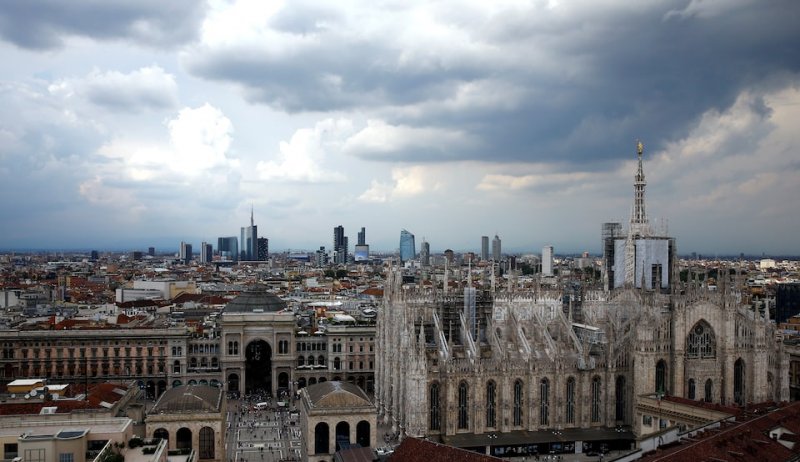Italy’s government plans to impose an €11 billion tax hike on banks and insurance companies over the next three years as part of its new 2026–2028 budget, according to officials.
The measures, set to be approved by cabinet on Friday, aim to finance tax cuts and expansionary policies worth around €18 billion annually. The financial sector will shoulder a large portion of the new costs, News.Az reports, citing Reuters.
The draft budget also proposes raising the “flat tax” for wealthy foreign residents from €200,000 to €300,000, while state coffers are expected to receive €4.4 billion from banks and insurers in 2026 alone.
Deputy Prime Minister Matteo Salvini defended the decision, saying:
“This is no expropriation. Instead of €50 billion in profits, banks will only make €45 billion this year.”
The move followed internal coalition debates, but differences were resolved late Thursday, with the Forza Italia party confirming that institutions can voluntarily release reserves built under a 2023 windfall tax opt-out.
Meanwhile, Rome is also considering higher corporate tax bands (IRAP) and limiting the use of past losses to offset current tax bills. Italy’s banking association (ABI) indicated lenders may support the government through an extended freeze of deferred tax assets, though the draft suggests the shift could become permanent.
